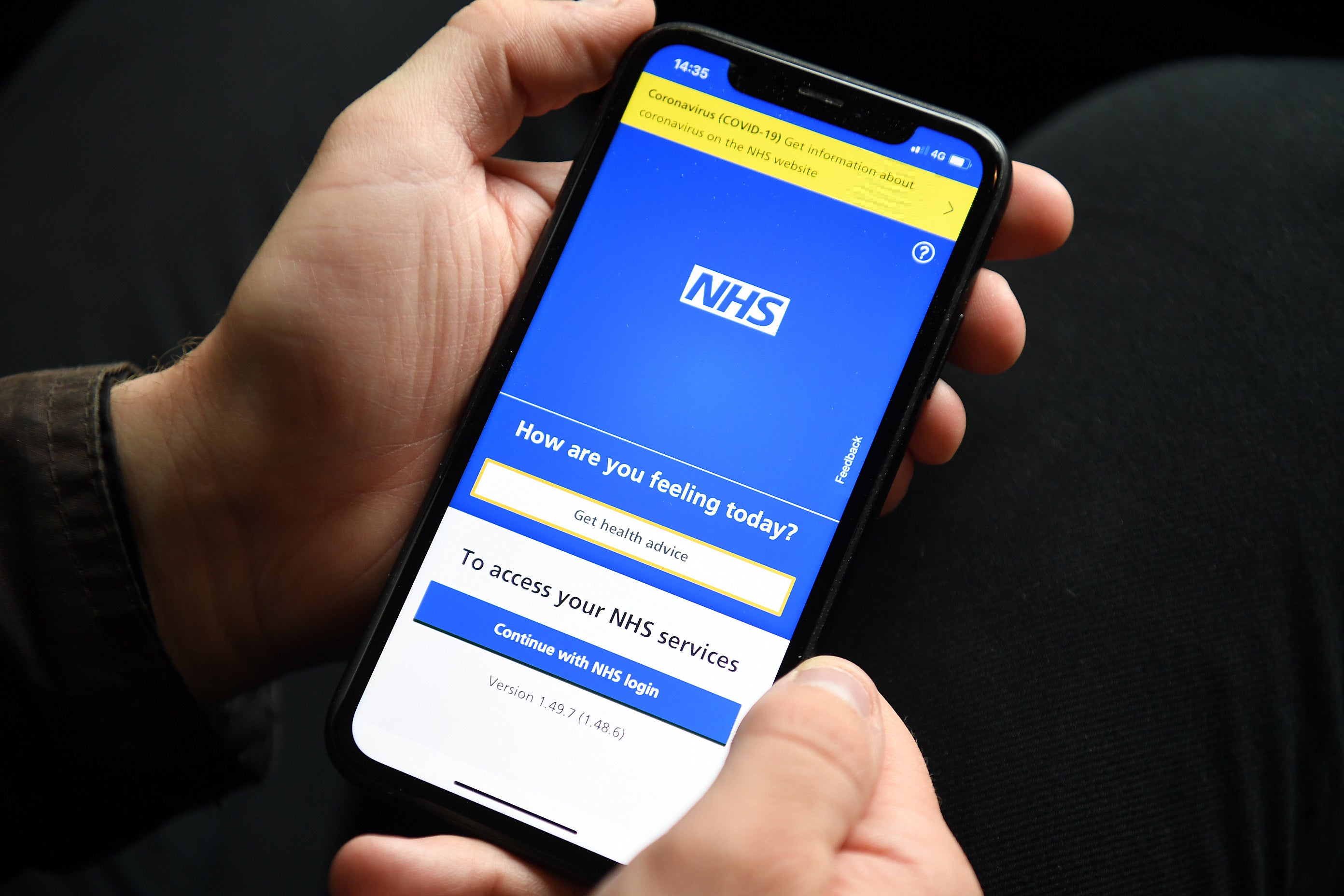People urged to use NHS app instead of calling GPs
There is a target of 75% for all adults in England to be using the app by March 2024.

Patients will be encouraged to use the NHS app first instead of calling GPs under a new set of reforms announced by the Health Secretary.
Sajid Javid will use a speech at the Royal College of Physicians on Tuesday afternoon to set out his vision for how the health service will evolve to cope with rising challenges, including people living longer with complex conditions.
Under the plans, patients will be urged to use the NHS app to manage their health. There is already a target of 75% for all adults in England to be using the app by March 2024.
Health chiefs hope people will use their phones to book appointments, communicate with their surgery, see test results and get advice to manage their health and wellbeing.
The shock of Covid and the urgent need for recovery has brought us to this crossroads right now. I choose reform
The NHS will also publish a digital health plan later in the spring, which will include rolling out more “virtual wards”, where patients can be monitored from their homes.
Mr Javid is also expected to set out further details of how patients who have waited 18 months for NHS treatment can opt to go private instead, all paid for by the health service.
The new NHS reforms will also result in a near doubling in the number of people offered “personalised” healthcare, including the right to control the budgets spent on them for long-term conditions.
Personal budgets have been in place for years and can be used to pay for a wide range of services, such as therapy for depression, equipment for the home and help with personal care.
But an expansion in the scheme means more than four million people will now benefit from personalised care.
Mr Javid will say: “Those are the long-term challenges the NHS must adapt to: changing demographics and disease; changing technology and expectations; and unsustainable finances.
“Taken together, it’s clear we were always going to come to a crossroads: a point where we must choose between endlessly putting in more and more money, or reforming how we do healthcare.”
He continued: “There were major challenges before the pandemic.
“Pressures in social care were rising substantially too.
“But without the pandemic, the Covid backlogs, an even more stretched workforce and other new pressures, that choice might have been many years down the line.
“The shock of Covid and the urgent need for recovery has brought us to this crossroads right now.
“I choose reform.”
These measures will support the work of the NHS Long Term Plan – giving more patients greater choice and control over their own health
Under the plans, there will also be the rolling out of electronic records to 90% of trusts by December 2023 and 80% of social care providers by March 2024.
Amanda Pritchard, NHS chief executive, said: “As the NHS recovers services and addresses the Covid-19 backlogs that have inevitably built up during the pandemic, these measures will support the work of the NHS Long Term Plan – giving more patients greater choice and control over their own health.
“The pandemic has shown us what can be achieved when we work together across health, social and wider community services and, taken with the reforms set out in the Health and Care Bill, these actions will help to ensure patients and their families are firmly in the driving seat when it comes to making decisions about their care.”
Bookmark popover
Removed from bookmarks